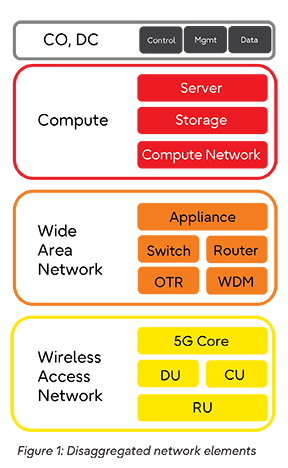Start the Journey to Cloudification on Solid Ground

Escalating expectations for digital experiences are driving the need for ever-faster speeds, better performance, and peak quality of service. Before existing infrastructure can support a new generation of revenue-generating, digital-first experiences, however, many networks are still in need of digital transformation.
To support individualized services from the edge to the mobile core, legacy networks require the agility and scalability that only cloud-native operations can deliver. But a successful digital transformation requires more than simply replacing physical hardware with virtualized network functions.
Today’s mobile network operators (MNOs) cannot realize true competitive advantages without fully embracing intelligence, analytics, and automation. Plus, the ability to deliver virtual connected experiences seamlessly from the core to the network edge also requires a healthy, open ecosystem.
With all the factors to be considered, building and executing this transformation strategy can appear to be a challenging and daunting prospect. Nonetheless, in today’s competitive networking environment, the road to cloudification cannot be safely bypassed. Cloud-native solutions enable seamless connectivity, data-driven insights, automated intelligence, and productivity innovations, allowing delivery of highly personalized customer experiences that break through the status quo.
As MNOs embark on this journey, the first steps they take are critical to avoiding missteps and stumbles along the way.

Open to opportunity
Enabling individualized customer experiences with new and untested cloud technologies can place considerable pressure on the software and services layers of the network stack. This means these underlying layers need to be interoperable and as flexible as possible, requiring greater modularity and the introduction of open, standardized models and application programming interfaces (APIs). As the network evolves to be more cloudified, increased operational agility, visibility, and control become ever more critical in order to enable performance management across



















